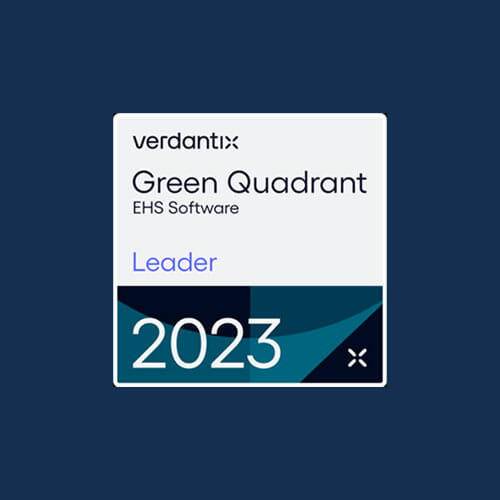Enacted in 2021, Article 29 of the Energy Climate Law mandates an additional disclosure requirement for investors regarding sustainability information. As we approach the deadline for the third round of Article 29 LEC reports on June 30th 2024, management companies must glean insights from past experiences. Cority’s team of sustainability & ESG experts offers invaluable advice to ensure your compliance journey begins on the right foot.
Article 29: A French Law That Goes Beyond European Laws
Article 29 of the Energy Climate Law strives to create increased transparency in the publication of non-financial data among financial actors operating in France. This law shows that France aims to play a leading role in the Sustainable Finance sector as the requirements are more ambitious than the EU’s “Sustainable Finance Disclosure Regulation (SFDR)”, (i.e. EU regulation aimed at promoting sustainability in the financial sector).
Management companies need to complete several specific templates that topics such as:
- ESG (integrating environmental, social, and governance factors into investment policy)
- Climate (disclosing a strategy for aligning with the objectives of the Paris Agreement)
- Biodiversity (disclosing a strategy for aligning with international biodiversity objectives)
All French management companies, including French subsidiaries of foreign management companies, have to report under this regulation. Management companies must publish an Article-29 LEC Report by June 30th of each year (six months after the end of the fiscal year) based on templates provided by the AMF (the independent French public authority that regulates the French financial marketplace). This report must then be published on the management company’s website and the ADEME’s Climate Transparency Hub platform (ADEME is the French Environment and Energy Management Agency). To date, there are no fines but rather reputational risks in the case of non-publication.
AUM And EU Regulatory Requirements Determine The Information To Be Disclosed By Management Companies
The AMF outlines specific reporting templates, or “annexes”, for management companies on its extranet “ROSA”. The goal is to harmonize the extra-financial data and to ensure comparability of information. These templates are to be completed depending on the management company’s portfolio size and its reporting obligations under SFDR:
| First Annexes – Approach to PAI indicators at management company level | Second Annexes – EU Green taxonomy reporting | Additional disclosures | ||
| AUM | No reporting on PAI | Reporting on PAI | ||
| Under 500€ M | A Annex (Report template) | G Annex (PAI calculations) | C Annex (Taxonomy alignment calculations)
|
D Annex (Management company data)
+ E Annex (Correspondence table) |
| Above 500€ M | B Annex (Report template) | F Annex (qualitative information)
+ G Annex (PAI calculations) |
||
Management Companies Must Provide An Explanation If Information Is Not Available Or If No Measures Are Implemented
The “comply or explain” principle is applied throughout the entire report. In other words, if a management company does not have answers to a section or has not implemented any measures, it must explain it. However, the “comply or explain” principle for Article 29 of the Energy Climate Law is stricter than that of the SFDR. Therefore, if a management company does not have the required information, it must publish a continuous improvement plan. This plan must include:
- Identified improvements and clear corrective actions to improve the current situation, together with targets and a timetable for implementation.
- Explanations on how the corrective actions will impact both the strategy and operations of the asset management company.
First Feedback Shows Limited Disclosures On Climate And Biodiversity Objectives And Lack Of Comparable Data
In April 2023, ADEME shared some feedback on last year’s Article 29 Energy Climate Law reports (for the fiscal year 2021). One key finding was that most actors have not yet published climate objectives. ADEME recommends prioritizing climate objectives expressed in terms of physical intensity (per unit produced or consumed) or in absolute terms (i.e. total CO2 emissions of a company), rather than in monetary intensity (such as emissions per unit of revenue).
Regarding biodiversity, only a third of actors communicated on biodiversity indicators, and only 9% reported on biodiversity objectives. Those who did highlighted a need to raise awareness, create competencies, and embed biodiversity in the investment strategies of management companies. Similarly, there is room for improvement regarding communication on alignment with the EU’s Green Taxonomy and exposure levels to fossil fuels. While this was not mandatory for 2022 reports, it became mandatory for 2023 reports and actors should have reported this data more extensively in the latest reports.
Lastly, the ADEME points to a lack of comparability in the information provided. The AMF templates made available last year should improve the comparability of this year’s data. We therefore recommend management companies to complete the AMF’s templates.
An internal analysis done by Cority on more than 40 management companies’ 2022 reports also found that most management companies collect ESG data but only 14% communicate consolidated quantitative KPIs. It is recommended for management companies to increasingly communicate on quantitative ESG information.
This Year The AMF Will Examine The Disclosures On Management Companies’ And Their Governance Structures
Going forward, the AMF has announced that it will focus its supervisory efforts on the following topics:
- The qualification and level of knowledge of employees
- The governance and the role of directors
- The engagement strategy and voting policy of management companies
These themes should be given particular attention in this third year’s Article 29 reports.
Cority is here to assist your company in defining and implementing climate, biodiversity, ESG strategies, and publishing annual reports including Article 29 compliant templates. Contact us to explore how our solutions and advisory services can support you on your sustainability strategies.











